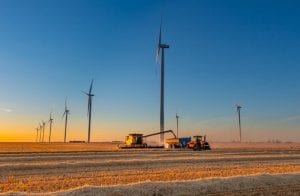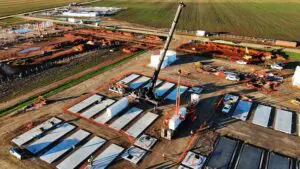For the past 20 plus years Australians have lived through a divisive climate debate that has resulted in policy confusion and inertia. But at last we have a book that explains how we have reached this impasse – Marian Wilkinson’s “The Carbon Club”.
Yes, we have lived through it. Yes, we have read all about it. But when you see the saga laid out by Wilkinson in the pages of The Carbon Club, it is still possible to be deeply shocked by the level of ineptitude on both sides of the debate; the cynicism and manoeuvrings of our elected political class; and the role of international activists, funded principally by the fossil fuel industry, the likes of Exxon Mobil and Chevron.
Wilkinson clearly believes in the dangers of man-made climate change but she doesn’t bring ideological blinkers to her analysis. She recognises that many climate denying scientists have strongly held beliefs; she lays out the bungling and incompetence of the Labor Party and the Greens as well as that of the Liberals and the Nationals.
But most of all she gives us the names and the faces – the backroom lobbyists and the corporate titans who have had enormous influence on Australian policymaking – or rather the lack of it.
Here are just a few takeaways from my reading of The Carbon Club:
- Wilkinson’s research is meticulous. There are 80 pages of chapter notes or footnotes. This book is an important contribution to Australian contemporary history. And Wilkinson has managed to weave a narrative through the decades to keep the reader focussed.
- The key role played by Hugh Morgan and his colleague Ray Evans in the early rise of the climate deniers is laid out in captivating detail in The Carbon Club.
- Morgan, the former chief executive of Western Mining, had calculated back in 1997 that Western Mining could be up for a $100 million bill post Kyoto to meet the cost of its greenhouse gas emissions reduction.
But, as Wilkinson points out, this was also ideological issue for Morgan. “He saw environmentalism as a religious movement and the battle over climate change as the biggest threat to liberal private enterprise culture since socialism,” she writes.
The influence of US fossil fuel companies was greater than I had imagined. According to Wilkinson, it was facilitated through US lobby groups – linked into Australia thanks to Hugh Morgan, Ray Evans and Cory Bernardi.
The Carbon Club emphasises, in particular, the international linkage of the climate deniers and their role in cultivating a coterie of climate sceptic scientists. These scientists were important to politicians and business leaders.
“Their scepticism, passionately believed in most cases, removed the moral imperative to act on climate change.”
The Frontiers of Freedom Foundation of the US, a Washington based think tank funded by the oil industry, was first brought to Australia by Ray Evans and Hugh Morgan back in 1997.
Senator Cory Bernardi later played a critical role in linking US lobby groups with like minded Australians and spent time in the US studying strategies with groups such as the Cool Heads Coalition and the Competitive Enterprise Institute, another Washington think tank funded by Exxon Mobil.
- There were influential lobby groups at home too. Morgan sat on the board of the Cormack Foundation – the Liberal Party cash cow, a multi million dollar investment fund that determined the extent of the millions to be funnelled to Liberal Party coffers.
The Cormack Foundation also funded a key participant in the climate debate, the Institute of Public Affairs. Morgan was on its executive committee at one point.
- The most entertaining chapter of the book showcases the sheer effrontery of Tony Abbott when he came to power in 2013. The first act of his government was to sack Dr Tim Flannery, head of the Climate Commission.
- This was closely followed by giving the boot to Martin Parkinson – then Treasury Secretary but a former head of the Department of Environment.
- Even before the Federal election, Abbott had sent a warning letter to Jillian Broadbent, chair of the Clean Energy Finance Corporation, ordering her to ‘immediately cease to assess or make any further approvals or payments.’ The Carbon Club is worth buying for this chapter alone.
Wilkinson ends her book on a slightly optimistic note.
“For over two decades, Australia’s politicians have been fighting the climate wars fuelled by the carbon club. But despite the political carnage, the science of climate change has not been defeated.
The carbon club is breaking up as the climate crisis becomes more urgent. The next decade will determine whether the country and its leaders can rise to the challenge that lies ahead.”
Colleen Ryan is a former editor of the Australian Financial Review, and a former US and China correspondent.










